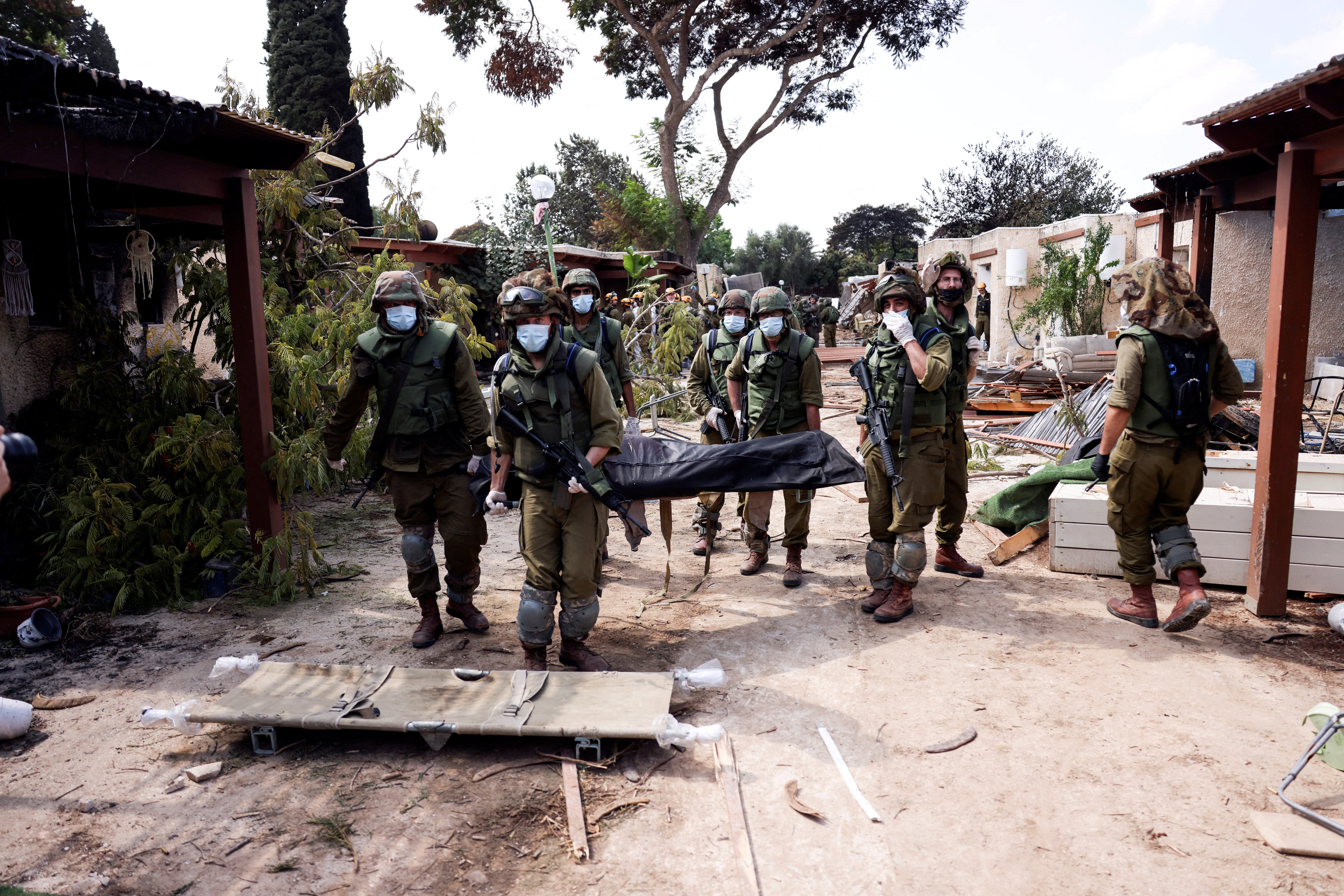US President Joe Biden on Tuesday did not mince his words when he gave his second address about the Hamas terror attacks in Israel.
“The brutality of Hamas’ bloodthirstiness brings to mind the worst rampages of ISIS,” he said, adding that he told Israel’s PM Benjamin Netanyahu that “if the United States experienced what Israel is experiencing, our response would be swift, decisive, and overwhelming.”
The aim was to show Israel’s enemies that there is little daylight between the US and Israel, and, crucially, to warn those who might be seeking to join the conflict – like Iran and Hezbollah in Lebanon – not to dare. This comes after a barrage of rockets was fired at Israel from Lebanon on Tuesday, while Hamas rockets continued to rain down on southern and central Israel, including Tel Aviv, the most populous city.
After emphasizing that Hamas’ actions are a threat to the free world – and reminding viewers that the US has deployed its USS Gerald R. Ford aircraft carrier – the largest warship in the world – to the Eastern Mediterranean as a deterrent, Iranian-backed rebels in Yemen vowed to hit Israel with missiles if the US gets involved.
What’s more, US Secretary of State Antony Blinken, who flanked Biden during Tuesday’s address along with Vice President Kamala Harris, will head to Israel on Wednesday to meet with Israeli leadership.
Biden also confirmed that Americans are among those taken hostage by Hamas in Gaza and said Washington would ramp up aid to the Jewish State, including the delivery of Iron Dome missile interceptors, which are used to destroy incoming rockets.
The latest from the ground. The death toll in Israel has surpassed 1,200 since Hamas launched a series of massacres against southern Israeli towns on Saturday. As the Israeli military and ZAKA – Israel’s identification, extraction, and rescue squads – comb through kibbutzim and communities, they announced on Tuesday that 40 infants had been murdered on one kibbutz alone – including some gruesome beheadings.
Israel says that 156 soldiers were slain in the rampage, while the rest of the victims are civilians.
As Israel recovers bodies from the south, sporadic fighting with Hamas militants who remain in Israel has also broken out.
Meanwhile, the Israeli air campaign in Gaza continues, with Israel targeting Hamas facilities and personnel. In the densely populated Gaza Strip, Hamas fighters have been killed along with many civilians. The Palestinian death toll has surpassed 2,500, including 1,500 Hamas militants killed inside Israel after they waged Saturday’s attacks. The death toll inside Gaza is 1,055, according to the Hamas-run Health Ministry, and about two-thirds of these deaths are thought to be Hamas militants, according to David Makovsky of the Washington Institute of Near East Policy.
Israel has also placed the coastal enclave under a blockade, cutting off water, food and fuel shipments, exacerbating an already dire humanitarian situation.
Israel, for its part, will soon launch a ground offensive that could drag on for months. Defense Minister Yoav Gallant said to Israeli troops on Tuesday: “I have released all the restraints, we have [regained] control of the area, and we are moving to a full offense.”
“Whoever comes to decapitate, murder women, Holocaust survivors — we will eliminate him with all our might, and without compromise.”
- What does this conflict mean for Palestinians? For Hamas? ›
- After the Hamas massacre, Israel pounds Gaza ›
- Hamas attacks in Israel ignite war ›
- Hamas: What is it? - GZERO Media ›
- Israel-Hamas war: How is Europe responding? - GZERO Media ›
- Israel at war - GZERO Media ›
- Ian Bremmer: Understanding the Israel-Hamas war - GZERO Media ›
- Israel-Hamas war: Biden's second foreign policy crisis - GZERO Media ›
